5 Natural Ozempic Alternatives That Torch Fat, According to a Metabolism Expert
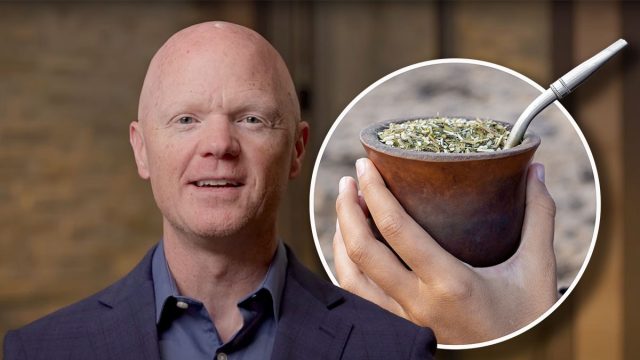
Struggling with stubborn fat that just won't budge? Before turning to expensive GLP-1 medications like Ozempic, you might want to consider natural alternatives. Dr. Benjamin Bikman, a prominent metabolic scientist and professor at Brigham Young University, has uncovered powerful natural methods to boost your body's own GLP-1 production—the same hormone targeted by popular weight loss drugs. With a Ph.D. in bioenergetics and extensive research on metabolic disorders including obesity and diabetes, Dr. Bikman offers science-backed strategies that could help you burn fat without the concerning side effects of medications. Discover these five natural fat-torching alternatives and take control of your metabolism today.
What's This GLP-1 Thing Anyway?
GLP-1 (glucagon-like peptide 1) is a gut hormone released by the small intestine when you eat, Dr. Bikman explains. This remarkable hormone plays several crucial roles in fat burning and weight management.
"One of the primary functions of GLP-1 is the ability to inhibit glucagon secretion," Dr. Bikman notes in his video. By suppressing glucagon (insulin's opposite), GLP-1 helps lower glucose production in the liver and stabilizes blood sugar—a key factor in fat metabolism.
RELATED: 15 Things to Know Before Requesting Ozempic for Weight Loss
How It Helps You Eat Less
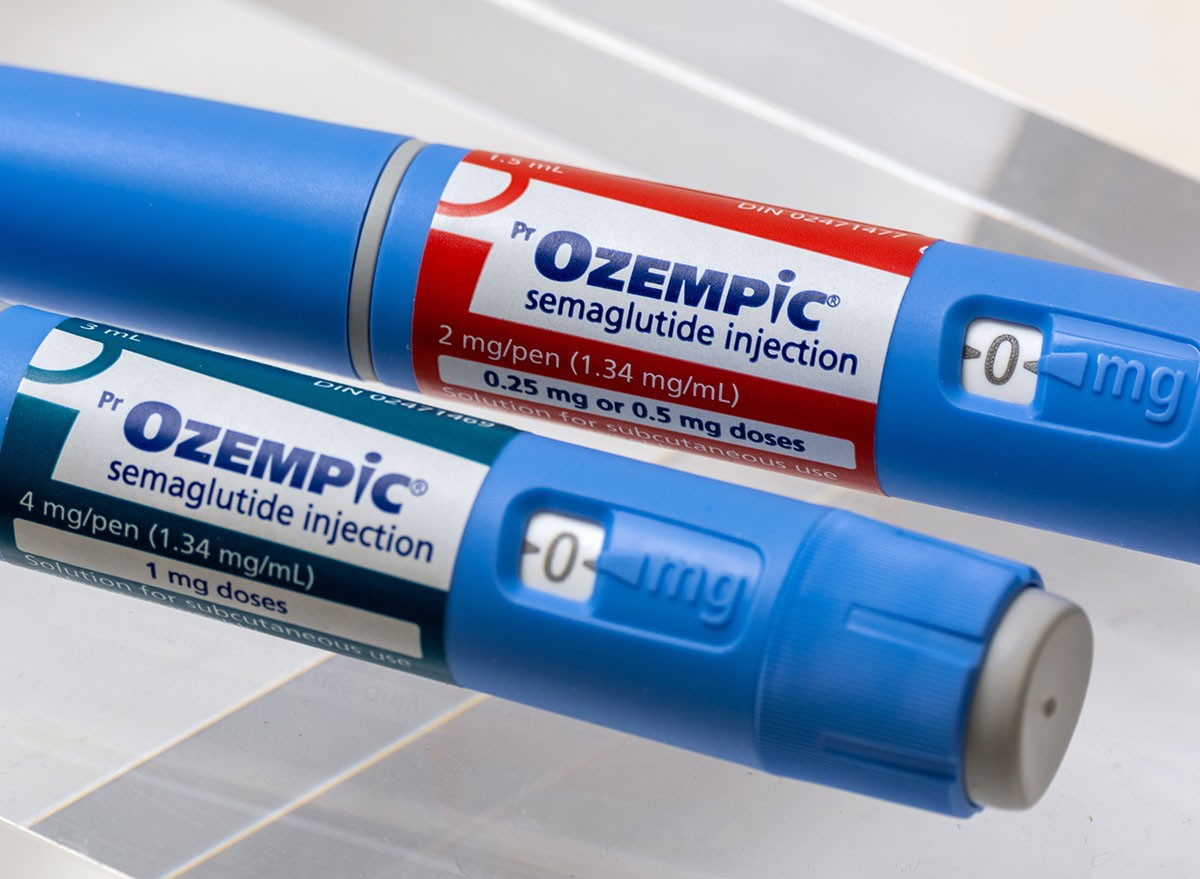
Another fat-fighting benefit is that GLP-1 delays stomach emptying. "By slowing down how quickly food is leaving the stomach, GLP-1 can prolong a feeling of fullness, reducing overall food intake," says Dr. Bikman. This natural appetite control helps you eat less without constant hunger.
Perhaps most importantly, Dr. Bikman points out that GLP-1 "activates satiety centers in the brain, directly acting on the hypothalamus to promote satiety, further reducing hunger and reducing the risk of overeating." This brain-gut connection is why GLP-1 has become such a target for weight loss interventions.
Why Some People Always Feel Hungry

Research shows that obese individuals often have impaired GLP-1 responses. Dr. Bikman cites a study by Ranganath and colleagues demonstrating that "post-meal GLP-1 secretion in response to carbohydrate consumption was significantly down in individuals with obesity compared to those who are lean."
This difference is substantial. "When the groups ate carbohydrate, the lean group had a GLP-1 response that was about three to four times higher than that seen in the obese group," Dr. Bikman emphasizes. This reduced satiety signal may explain why some people struggle with portion control and constant hunger.
The Dark Side of Ozempic
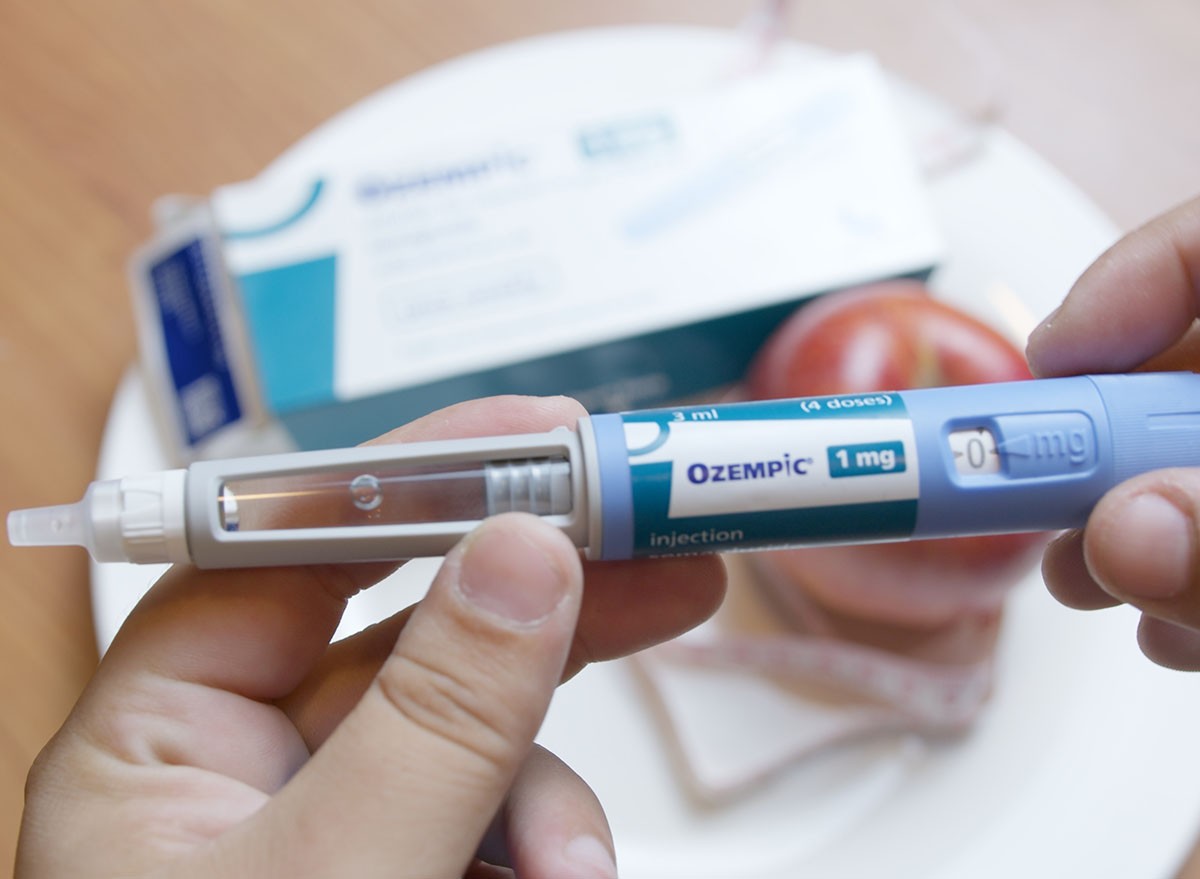
While drugs like semaglutide (Ozempic, Wegovy) can increase GLP-1 action, Dr. Bikman warns of concerning side effects. "The use of semaglutide resulted in 40% of the weight lost coming from fat-free mass, or lean mass," he cautions. This loss of muscle and bone can be difficult to recover from, especially with age.
RELATED: 20 Possible Ozempic Side Effects
Mental Health Risks You Should Know

Mental health impacts represent another serious concern. Research shows "the risk of depression goes up almost 200%, and the risk of suicidal behavior and anxiety goes up by a little over 100%," according to Dr. Bikman.
When the Medication Stops Working

Furthermore, patients often experience a return of sweet cravings after about two years, with studies showing that "at about two years, it had returned totally to normal." This coincides with when 70% of people discontinue the medication.
These concerns make natural approaches to boosting GLP-1 particularly appealing for sustainable fat loss. Read on to learn five natural alternatives to Ozempic that boost fat burning.
Yerba Mate: Your New Morning Drink

Dr. Bikman's own laboratory research demonstrates that yerba mate tea significantly increases GLP-1 levels. "It was an increase of about 40 to 50 percent," he reports.
The magic behind yerba mate's effectiveness lies in its compounds. "Ferulic acid alone had a modest effect on stimulating GLP-1 from the L-cells, but that its microbial metabolite, dihydroferulic acid, increased GLP-1 significantly," Dr. Bikman explains. When this metabolite was tested directly, it increased GLP-1 "three or four times."
Bonus: It Fights Sweet Cravings Too

Beyond GLP-1 stimulation, yerba mate contains bitter compounds that further promote satiety and reduce sweet cravings, offering a "one-two punch" for fat loss.
RELATED: What Happens to Your Body When You Stop Taking Ozempic
Allulose: The Sweet Secret

This rare sugar provides sweetness without the metabolic downsides of regular sugar. Dr. Bikman's research found "a significant increase in GLP-1 levels with allulose consumption. And in fact, it was quite a rapid effect."
Satisfy Your Sweet Tooth Without Guilt

Unlike traditional sugars, "allulose does not spike blood glucose or insulin, but instead actually acts in a way to really promote some appetite suppression," Dr. Bikman explains. This makes it an ideal alternative to sugar for those trying to lose fat while satisfying sweet cravings.
Blood Sugar Benefits Too
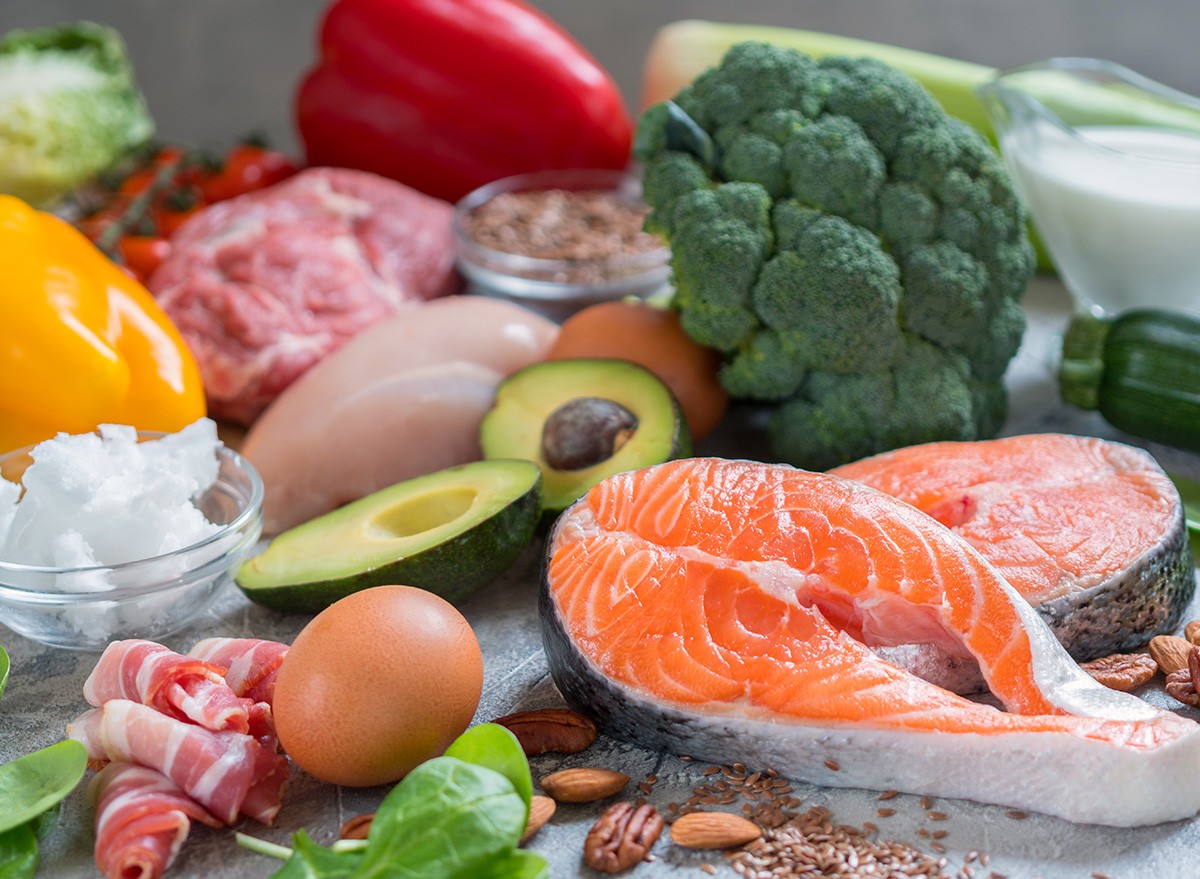
Allulose's ability to boost GLP-1 also helps regulate blood glucose by inhibiting glucagon, making it particularly beneficial for metabolic health beyond just weight management.
RELATED: 20 Things to Avoid While on Ozempic
Low-Carb Eating: A Simple Switch

Research demonstrates that a low-carb approach naturally enhances GLP-1 production. Dr. Bikman cites a study by Hall and colleagues showing that "those that were adhering to the low-carb diet had a significantly higher GLP-1 level" even in a fasted state.
Three Times More Satiety Power
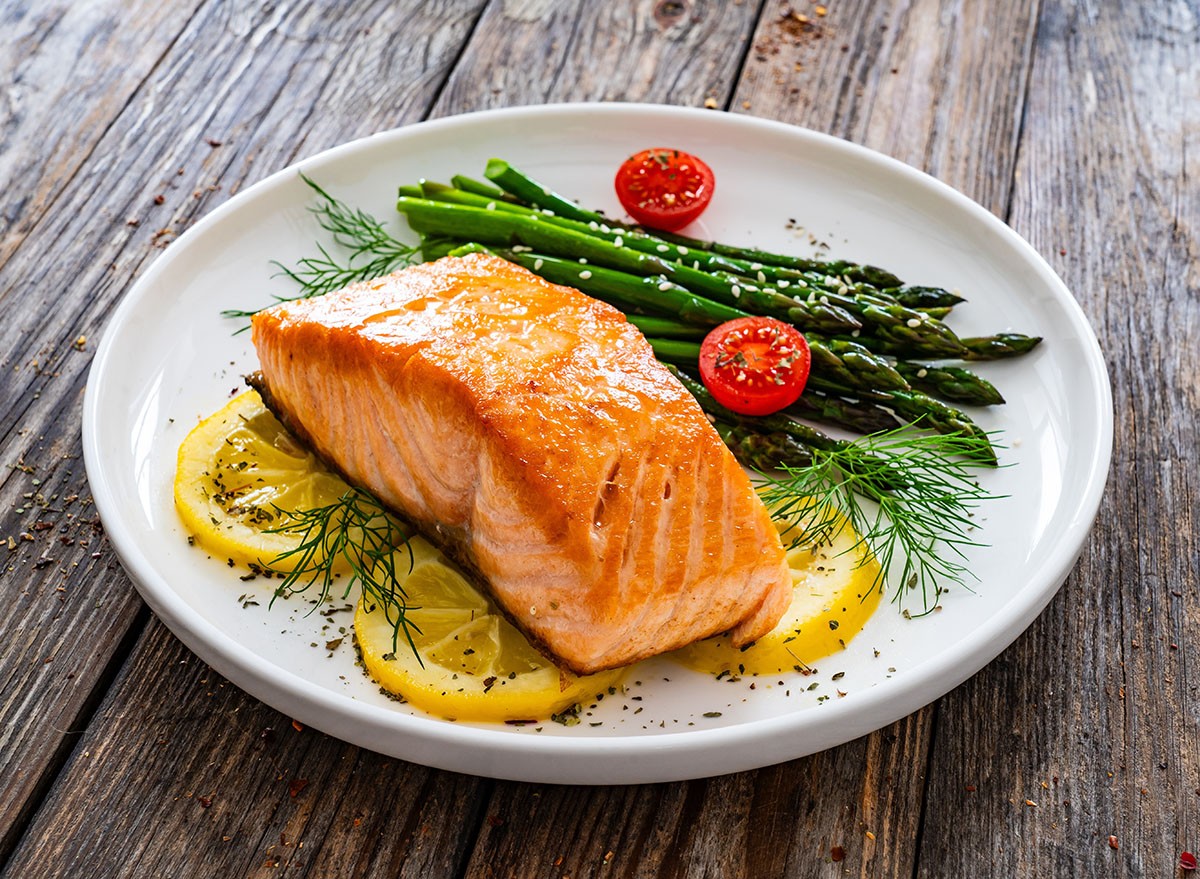
Even more impressive, "the low-carbohydrate meal elicited an increase in GLP-1 that was about three or four times higher than the same number of calories, but that found in the low-fat meal," Dr. Bikman reports.
Based on this evidence, he recommends we "control the carbs while prioritizing protein and not fearing fat" to naturally enhance GLP-1 production and facilitate fat burning.
Collagen: Not Just For Skin

While most people take collagen for skin and joint health, it offers significant metabolic benefits as well. "Collagen peptides have also been shown to increase GLP-1 secretion," says Dr. Bikman.
Double Benefit You Didn't Know About

In animal studies, researchers found that collagen peptides "increased blood glucose metabolism and blood glucose control and improved insulin sensitivity," benefits that appear to be mediated through increased GLP-1 production.
This finding suggests collagen supplementation provides dual benefits for both tissue health and fat burning through enhanced GLP-1 signaling, making it "one of the unappreciated aspects of collagen."
Better Sleep: The Easiest Fix

Sleep quality significantly impacts GLP-1 function and fat metabolism. "Poor sleep has been associated with impaired GLP-1 responses and impaired hunger," Dr. Bikman warns.
RELATED: 5 Foods That Maximize Weight Loss on GLP-1 Medicines, According to Coach
Break The Late-Night Snacking Cycle

The mechanism is clear: "A bad night of sleep actually blunts your GLP-1 levels, which can result in a reduced satiety signal, in other words, greater hunger." This increased hunger leads to more snacking and cravings, potentially creating a vicious cycle of poor eating and disrupted sleep.
By prioritizing quality sleep, you can maintain optimal GLP-1 levels and support your body's natural fat-burning processes without additional interventions.
The Natural Approach Wins Long-Term

While GLP-1 medications like Ozempic can be effective for weight loss, Dr. Bikman emphasizes that natural alternatives offer "a safer, yes, more subtle, but more sustainable strategy for maintaining metabolic health and helping GLP-1 work for you."
Your Action Plan Starts Now

By incorporating yerba mate, allulose, a low-carbohydrate diet, collagen peptides, and quality sleep into your routine, you can naturally enhance your body's GLP-1 production. These five strategies provide practical, science-backed alternatives to expensive medications for those seeking sustainable fat loss without concerning side effects.
As Dr. Bikman concludes, these natural methods offer hope especially for those who "may be getting a blunted GLP-1 response to what they're eating," helping them regain control over appetite, metabolism, and ultimately, their weight. And if you enjoyed this article, don't miss 20 Incredible Ozempic Success Stories of All Time.




